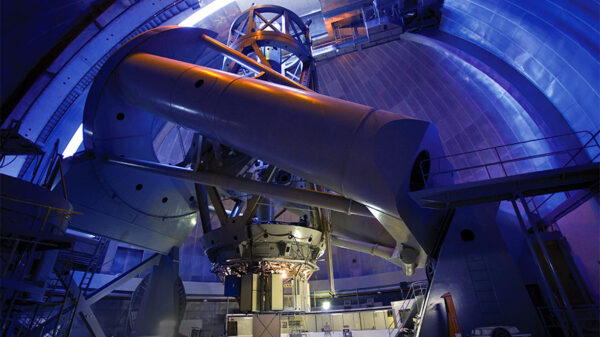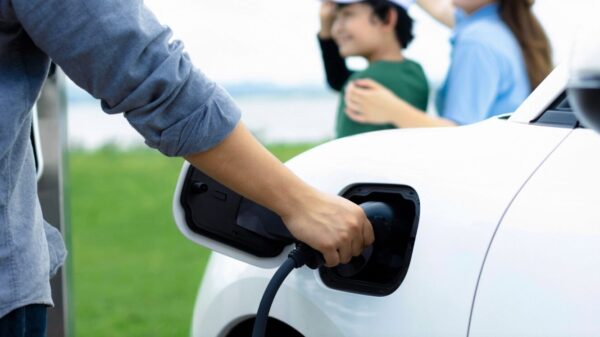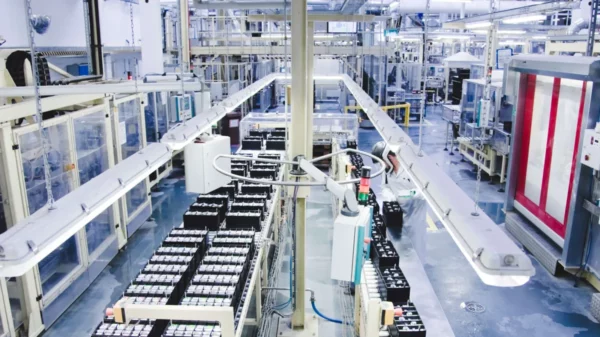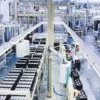DuPont’s (NYSE: DD) FilmTec LiNE-XD nanofiltration membrane elements was recognized as a finalist for the 2024 Edison Awards in the Resource Recovery & Environmental Conservation category.
The company announced that its technology can help enable lithium production from such resources as salt lake brine, geothermal brine and surface and sub-surface clay.
Purifying lithium brine is necessary for producing electric batteries to combat climate change. FilmTec LiNE-XD nanofiltration membrane elements are designed to endure harsh conditions while also delivering high recovery of both lithium and water, requiring less energy than other methods.
Dupont’s FilmTec LiNE-XD nanofiltration membrane elements possess durability, selectivity, and permeability that can facilitate lithium mining operations, including emerging applications such as direct lithium extraction (DLE).
They aid in enhancing lithium yield, reducing energy consumption, and increasing membrane lifetime compared to conventional nanofiltration membranes. Additionally, their efficient removal of scaling impurities reduces the need for cleaning, chemical usage, and disposal in downstream lithium concentration processes.
DuPont’s water technologies actively purify more than 50 million gallons of water every minute worldwide, facilitating water reuse, recycling, desalination, and safe access to both ground and surface water.
The company addresses a variety of water and sustainability challenges encountered by industrial water users and water treatment municipalities through a broad portfolio of membranes, resins, and systems. These include reverse osmosis membranes, ion exchange resins, ultrafiltration, electrodeionization, nanofiltration and more.
The Edison Awards is an annual competition that honours excellence in new product and service development, marketing, human-centered design, and innovation. The 2024 Edison Awards Gala in Fort Myers, Florida, will announce the gold, silver, and bronze winners on April 18, 2024.
Read more: Lithium South and POSCO Holdings ink mutual development agreement
Read more: Lithium South Development technical report shows 40% increase in lithium recovery
Water purification technologies could add substantial benefits
The adoption of innovative water purification technologies in lithium operations and mining can offer a range of benefits, including increased efficiency, reduced environmental impact, enhanced sustainability, improved resource recovery and lower operational costs.
Rising supplies of the battery metal, subdued Chinese demand, and a lacklustre American electric vehicle (EV) market are expected to drive further declines in lithium prices.
According to a quarterly report issued last month by Australia’s Department of Industry, Science and Resources, the country, which mined about half of the world’s lithium in 2022, forecasts that the spot price of spodumene will fall to USD$2,200 per tonne in 2025 from an estimated average of USD$3,840 per tonne last year.
The department also predicts that lithium hydroxide, a refined version of the metal used in batteries, may decline to around $30,000 per tonne next year from an estimated average of USD$52,450 in 2023. Additionally, lithium carbonate, a precursor to the hydroxide, saw a decrease to 96,500 yuan per tonne on Thursday, down from about 170,000 yuan in September, according to Trading Economics.
This makes new technologies and their ability to cut operational costs all that much more important.
This matters as much to the large lithium producers like Albemarle Corporation (NYSE: ALB) and Arcadium Lithium plc (NYSE: ALTM) (ASX: LTM) as it does to the smaller, younger companies like Lithium South Development Corporation (TSX: LIS) (OTCQB: LISMF) (Frankfurt: OGPQ) and Argentina Lithium & Energy Corp. (TSXV: LIT) (OTCQX: LILIF). Each of these companies will need to find innovative ways to cut costs when the price of lithium is down.
Lithium South Development Corporation is a sponsor of Mugglehead news coverage
.
Follow Joseph Morton on Twitter
joseph@mugglehead.com














